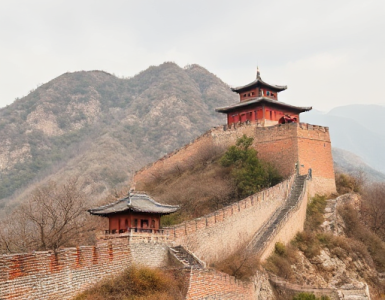Ever wondered why we celebrate Halloween with costumes and candy? Or why certain foods are associated with particular holidays? The history of culture is full of bizarre twists and turns, unexpected connections, and surprising legacies. It’s a messy family reunion of traditions, where seemingly disparate customs often share surprisingly close relatives.
The Curious Case of the Fork
Let’s start with something as mundane as the fork. We take it for granted now, but its adoption in Europe was a surprisingly drawn-out battle. Forks were initially seen as effeminate, even heretical by some, in the Middle Ages. Think about it – picking up food with your fingers was, for a long time, the norm. It wasn’t until the 17th century that the fork really gained traction, helped along by – you guessed it – the Italian Renaissance. The Italian elite embraced the fork, and its use slowly spread through the ranks. This seemingly small shift in cutlery reflects the power of cultural exchange and adaptation – initially a symbol of upper-class refinement, the fork eventually became a ubiquitous utensil.
Spices: Empires, Trade, and Tasty Twists
The history of spices is a fascinating example of how historical events directly shaped culinary traditions. The spice trade, a driving force behind colonial expansion, introduced exotic flavours to Europe. Think cinnamon, clove, and nutmeg – once incredibly valuable commodities, their availability today is a testament to global trade’s historical development. But their journey wasn’t always smooth. Control over spice routes fuelled wars and shaped political landscapes, influencing the very ingredients we use today. For example, the dominance of certain European powers in the spice trade directly influenced the development of their cuisines, resulting in unique flavour profiles that continue to this day.
Tea & The British Empire: A Brewed History
Tea is another incredible example. Initially a Chinese beverage, tea’s journey to becoming a British staple is deeply intertwined with imperialism. The British East India Company’s monopolistic control over the tea trade – a period marked by exploitation and conflict – not only established tea as a national drink but also played a significant role in shaping British identity and culture. The ritual of afternoon tea, for instance, is a direct byproduct of the vast economic and political influence exerted by this company. It’s a reminder that seemingly simple pleasures often have complex and sometimes troubling origins.
The Unexpected Roots of Halloween
And then there’s Halloween. We associate it with costumes, trick-or-treating, and spooky fun. But its origins lie far from themed parties and candy corn. Halloween’s roots are firmly planted in Samhain, a Celtic festival marking the end of summer and the harvest, and a time when the veil between the living and the dead was thought to be thin. The adoption and transformation of this ancient Celtic tradition into a modern secular celebration showcases the power of cultural adaptation and fusion. The costumes and carving pumpkins? Those are later additions. Trick-or-treating itself appears to have developed from the medieval practice of “souling,” where poor people would go door-to-door requesting food and drink in exchange for prayers for the dead.
The Surprisingly Patriotic Pizza
Even something as seemingly ubiquitous as pizza has an unexpectedly fascinating history. While the flatbread concept dates back millennia, the pizza we know and love today is a largely 20th-century phenomenon. Its rise to global popularity is partly due to American soldiers stationed in Italy during World War II, who brought their newfound love for Neapolitan pizza back home. This seemingly simple culinary exchange dramatically increased the pizza’s global popularity, a testament to how seemingly minor historical events can have a significant cultural impact.
The Long and Winding Road of Languages
Consider the evolution of languages. English, for example, is a fascinating melting pot of influences. From its Anglo-Saxon roots to the Norman invasion’s injection of French, and later influxes from Latin and various other languages, its development is a testament to migration, conquest, and cultural exchange. The words we use daily are echoes of historical interactions and transformations. This makes language itself a tangible reflection of history and its messy, often chaotic, interactions.
The Unexpected Power of Propaganda
Propaganda, often viewed negatively, has undeniably shaped our culture in profound ways. Think of iconic imagery used during wartime – posters and slogans designed to build morale, demonize the enemy, and create a sense of national unity. Even now, decades later, the echoes of these propagandistic efforts can be felt in our cultural narratives and societal perceptions. While controversial, propaganda reveals how deliberately crafted messages can profoundly shape our shared understanding of historical events and reinforce cultural beliefs.
In conclusion, the threads of history are intricately woven into the fabric of our culture. What might seem like random traditions or everyday habits often have deep and surprising origins. Exploring these connections gives us a richer understanding of our shared past and the complex ways in which events and cultures continuously interact and evolve. By understanding these unexpected connections, we gain a deeper appreciation for the rich tapestry of human experience. Culture's Curious Quirks: Unexpected History Lessons Hidden in Plain Sight
























Add comment